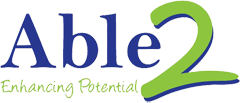Home » Helpful Resources
Helpful Resources
Our agency often partners with other agencies and services in order to provide the best information and services to the individuals we serve and their families. We are supported by resources and groups to help us with our mission. We offer those resources to our individuals.
New York Disability Advocates (NYDA) is a statewide coalition of more than 300 non-profit organizations providing vital services and support to more than 125,000 New Yorkers with intellectual and developmental disabilities.
My Child Without Limits provides links to other resources for families dealing with children with developmental disabilities. The website collaborates with healthcare professionals for the latest in diagnostic information and treatments. Information in all developmental disabilities is available.
Cerebral Palsy Associations of New York State is a multi-service organization with 24 Affiliates, including Able2. Their mission is to advocate and provide direct services with and for individuals with cerebral palsy and other significant disabilities.
The Elks Clubs of New York State partners with Cerebral Palsy of Chemung County to provide financial support and services to the Home Service Program. Thanks to strong support from their members, the New York State Elks Clubs raise nearly $500,000 annually for CP affiliates around the state. Their mission of the home service program is to provide advocacy, counseling, referral, resource development and follow-up.
The Regional Centers for Workforce Transformation (RCWT) are pleased to offer you this website as a source of current information, practical resources and tools that will assist you.
- OPWDD Family Support Services – Region 1
Family Support Services Coordinators are available at each of OPWDD’s Developmental Disabilities Regional Offices (DDROs) to help families access Family Support Services. Each DDRO also has a Family Support Services Advisory Council to represent the interests of family members and people with developmental disabilities. The councils work in partnership with the DDROs to make decisions supporting families and loved ones.
- College Planning Guide for Students with Learning Disabilities
This helpful resources covers a range of topics that students with learning disabilities interested in exploring college opportunities may find valuable.

